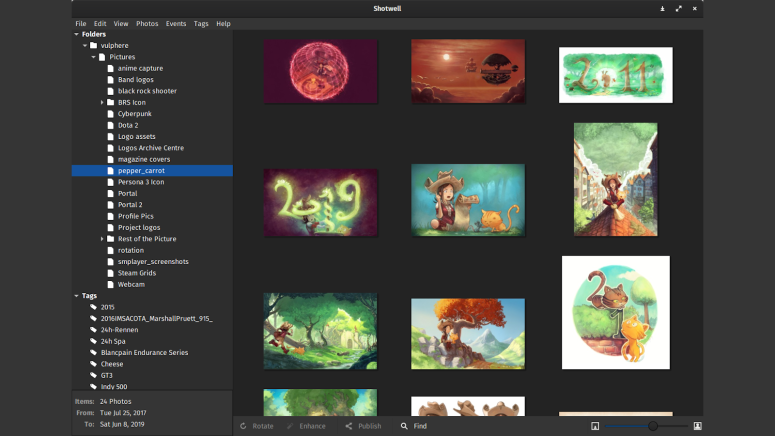
Rothschild Patent Imaging Sues GNOME Over Patent Infringement
- The GNOME Foundation is under legal attack by the Rothschild Patent Imaging.
- The popular Linux desktop environment is accused of patent infringement regarding image distribution and organizing.
- The application that is targeted is Shotwell, a photograph manager and connectivity utility.
The Rothschild Patent Imaging (RPI) has submitted a lawsuit against GNOME Foundation, accusing them of patent infringement in regards to the wireless distribution of images. The number of the patent that supports the case is “US9936086”, and the lawsuit seeks for injunctive relief as well as the payment of damage compensation. The infringement is pinpointed on the Shotwell image tool, which is part of the GNOME Desktop Environment. GNOME is a popular open-source DE for Linux operating systems, which was created in 1997 in order to offer users a DE that would be based on a toolkit that isn't proprietary. This new toolkit was GTK, licensed under the GPL, and being "free as in free speech".
Fast forward more than two decades after that, GNOME and the GTK are on their third major version, and tools like the Shotwell image organizer and photo manager are an integral part of it. Shotwell was originally developed by Yorba, an independent software developer, and in 2010 it replaced GNOME’s previous default app which was the F-Spot. The problem with Shotwell according to the RPI is that it can receive photos from a camera via WiFi, filter and organize them, and finally share them on the social media. And this is exactly where the problem is according to the lawsuit.
The GNOME Foundation stated that this lawsuit is baseless, and they comment that this isn’t the first time that the RPI is targeting tech companies. The particular patent covers both WiFi and Bluetooth connectivity, includes the sorting of the images based on their metadata, and was filed in 2008. Since the patent is mentioning “an image-capturing mobile device”, and since Shotwell is a software application, GNOME feels that the accusations are entirely baseless. However, RPI is probably hoping in the vagueness of the patent description and how anything can be considered a device.
The Executive Director of the GNOME Foundation, Neil McGovern, has made the following statement on the matter: “We have retained legal counsel and intend to vigorously defend against this baseless suit. Due to the ongoing litigation, we, unfortunately, cannot make any further comments at this time.”
Our view is that the particular patent is covering a very wide spectrum of software applications, tools, and devices. Of course, this means that RPI can make a lot of money out of licensing the patent, which is the primary purpose of patenting things. However, granting them a patent for something that has been a common practice long before 2008, and for something that covers such a wide range of applications is making us scratch our heads.
Do you have an opinion on the above story? Share it with us in the comments down below, or on our socials, on Facebook and Twitter.







